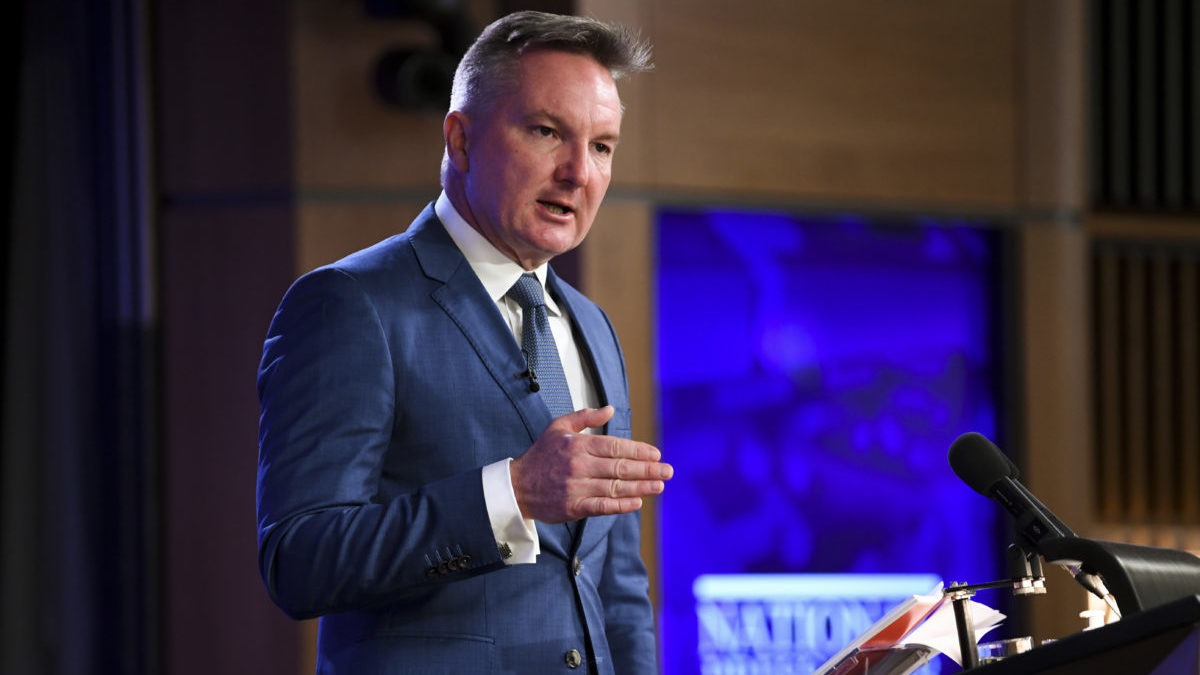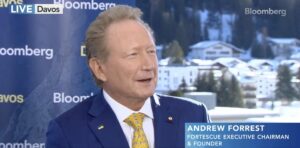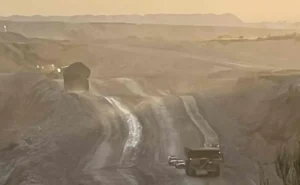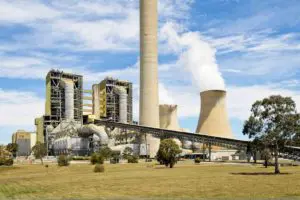Labor will introduce its first package of climate change legislation during the first sitting of the new parliament, moving to formally legislate is new 2030 emissions reduction target and a revitalisation of the Climate Change Authority.
In address on Wednesday, federal climate change and energy minister Chris Bowen told the National Press Club that Labor would introduce two pieces of ‘climate legislation’ when the new parliament convenes at the end of July.
This will include legislation to enshrine its 43 per cent emissions reduction target for 2030 into law, along with a commitment to reaching net zero emissions by 2050.
“Secondly, we will task in law the Climate Change Authority to assess and publish progress against these targets and advise government on future targets, including the 2035 target,” Bowen said.
“Thirdly we will legislate a requirement for the minister for climate change to report annually to Parliament on progress in meeting our targets.”
Bowen said that Labor would also look to include integrate the emissions reduction targets into the functions of a range of federal government agencies, including the Australian Renewable Energy Agency, the Clean Energy Finance Corporation and the Northern Australia Infrastructure Facility.
The Climate Change Authority was established by the former Gillard government to provide expert advice and research to the federal government about climate policies and targets – but the agency had effectively seen its resources stripped away by consecutive Coalition governments.
While Labor is likely to gain support for the revitalisation of the Climate Change Authority, and plan to require the climate minister to provide regular update reports to the parliament.
However, it could face a fight over its 2030 emissions target, with the Greens and several independents expected to push Labor to adopt a much stronger target for cutting emissions.
Prime minister Anthony Albanese has already officially written to the secretary general of the UNFCCC to communicate Australia’s commitment to the 43 per cent target, and Labor will resist pressure to up the target at this stage.
Bowen told the Press Club that while he would listen to ‘good ideas’ from the expanded crossbench – which features a significant number of new ‘teal’ independents and an enlarged Greens contingent – Labor would not stray from the core commitments it took to the federal election.
“If there’s a good idea which improves, not undermines, the bill I’m happy to hear it and work with it. But we won’t be entertaining any amendments which are not consistent with our agenda and mandate,” Bowen said.
“Just as we have been clear that we regard legislation as being best practice, we have also been clear that the legislation is not required.”
“If the Parliament doesn’t wish to pass it, we will simply get on with the job, as we have already started to do.”
Interestingly, Bowen noted that the Climate Change Authority would be asked to provide advice to the federal government on a future 2035 emissions target.
All countries will be obliged to communicate a 2035 emissions reduction target under the terms of the Paris Agreement. This new target will need to be announced before 2025, meaning it will likely be set by the current Labor government.
As the Paris Agreement includes a ‘ratchet’ mechanism, requiring each future emissions reduction target to be more ambitious than previous targets, the setting of the 2035 target could provide Labor with an opportunity to adopt a stronger target, without budging from the 2030 target it took to the election.
As foreshadowed by The Driven, Bowen confirmed that Labor would introduce legislation to implement its promised cuts to federal taxes that apply to electric vehicles, taking retrospective effect from 1 July.
The tax cuts will see import duties lifted from a range of electric vehicle models, cutting purchase prices by as much as 5 per cent, as well as exempting some electric vehicle models from the fringe benefits tax.
“We promised to cut the tariffs and abolish fringe benefits tax on affordable EVs from 1 July this year and that’s exactly what we will do,” Bowen told the Press Club.
“Of course, the Parliament doesn’t sit until late July, and so we will ask the Tax Office to make the tax cut retrospective, in accordance with usual procedure.”
In outlining Labor’s early parliamentary agenda on climate policy, Bowen hit out at the Liberal-National opposition’s stance on energy policy since the election, describing its push for a renewed debate over nuclear power as “economically illiterate”.
“[They are] bizarre and laughable claims that somehow the new Government, even talking about renewable energy, somehow spooked coal-fired power generators into not working,” Bowen said.
“And an economically illiterate attempt to argue that the answer to high power prices is to introduce the most expensive form of energy, which also takes many years to build, nuclear.”
“The Opposition has chosen to count themselves out of a sensible discussion on the most pressing issue facing the country, climate change and energy.”









